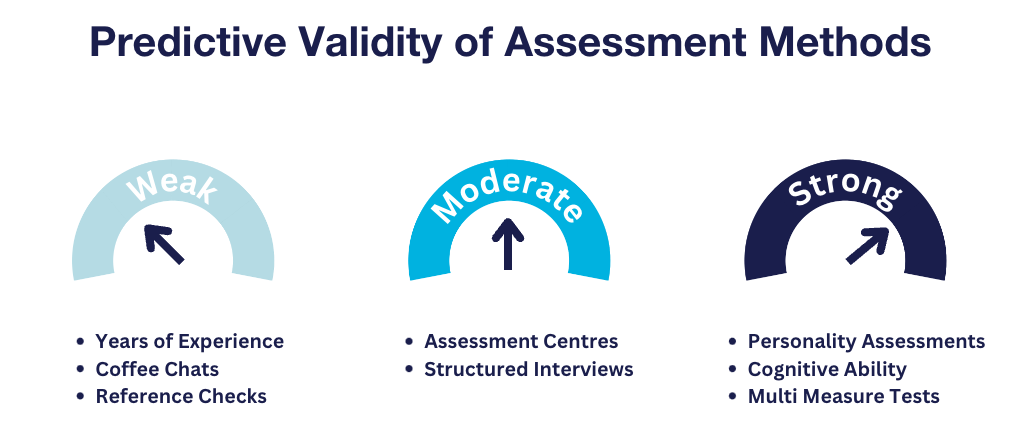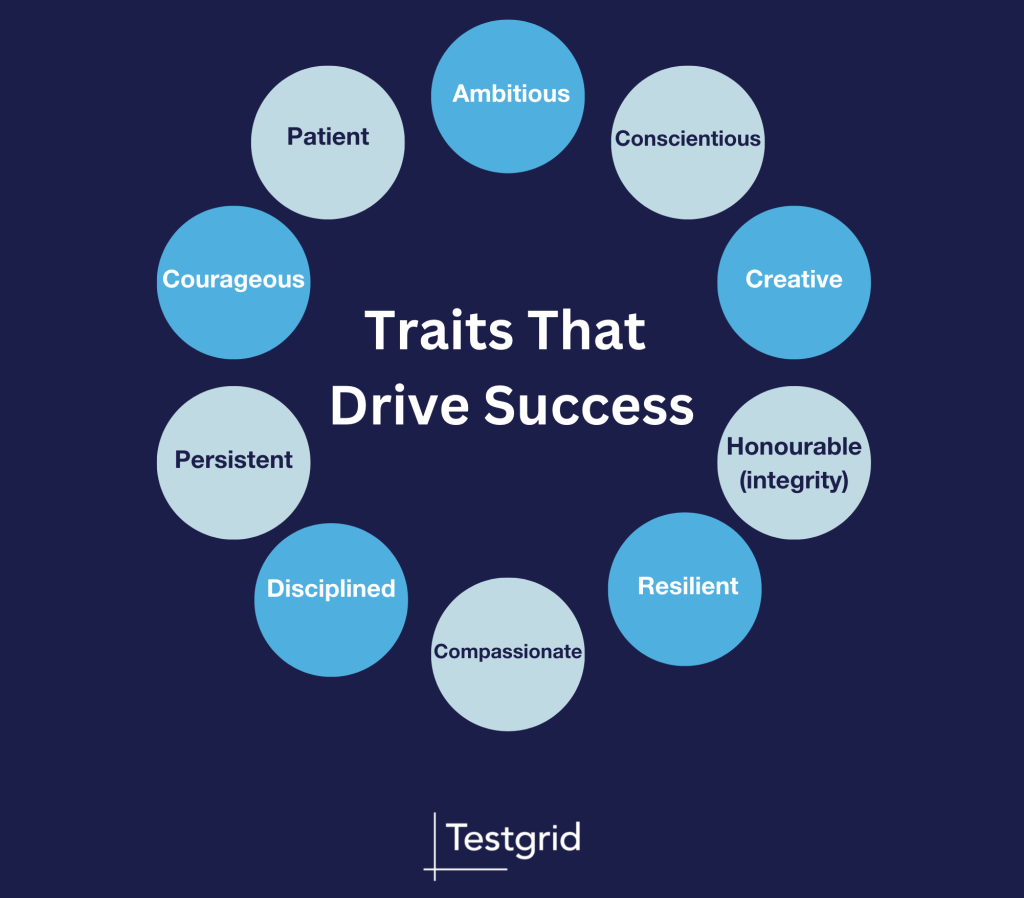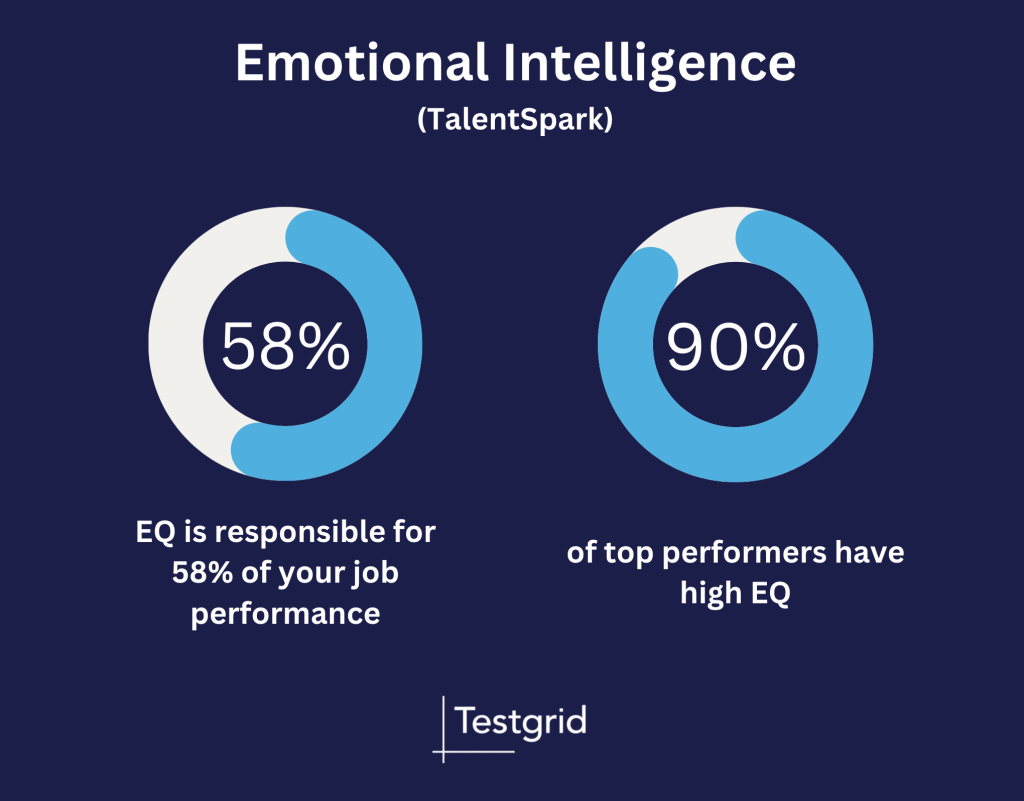Predicting Job Success with Personality: How Personality Tests Can Help
Personality plays a crucial role in shaping who we are and how we interact with the world.
It is not only a fascinating aspect of human nature but also a powerful predictor of job success. Today, companies are recognising the significance of personality as a reliable indicator of an individual’s potential to thrive in specific roles. As a result, personality tests or behavioural assessments have emerged as a valuable tool for evaluating job candidates and forecasting their likelihood of success within an organisation.
In this blog, we will delve into the intriguing realm of personality tests and explore how they can provide valuable insights into job success. We will examine various factors, including job fit, team dynamics, job performance, and leadership potential, that can be effectively assessed through personality tests. By understanding how these tests can predict success, we can gain a deeper appreciation for the vital role they play in shaping organisational outcomes.
JOB FIT: MATCHING PERSONALITIES WITH ROLES
Personality tests play a pivotal role in the recruitment process by helping employers determine whether a candidate is the perfect fit for a specific job. By delving into a candidate’s unique personality traits, employers gain valuable insights that enable them to make informed decisions about job placements. This thoughtful approach allows employers to align candidates with roles that best capitalise on their individual strengths and abilities, ultimately fostering a harmonious and productive work environment.
Consider, for example, a candidate who exudes natural outgoingness, boundless energy, and a knack for persuasion. These qualities make them an ideal fit for a dynamic sales role where building relationships, closing deals, and captivating customers are paramount. On the other hand, an introspective individual who possesses a penchant for analysis and an unwavering attention to detail may shine in research or analyst positions where their meticulous approach and analytical mindset are invaluable.
By prioritising the alignment between a candidate’s personality and the job requirements, employers pave the way for optimal job success and satisfaction. When individuals find themselves in roles that resonate with their inherent traits and tendencies, they are more likely to thrive, be engaged, and reach their full potential. This, in turn, creates a positive ripple effect throughout the organisation, elevating overall productivity, teamwork, and ultimately, the organisation’s success.

TEAM DYNAMICS: BUILDING EFFECTIVE AND COHESIVE TEAMS
Personality tests offer valuable insights into how well a candidate will integrate within an existing team, allowing employers to make informed assessments about team dynamics. By comprehending a candidate’s unique personality traits, employers can gauge their compatibility with the established team dynamic, ensuring a seamless and harmonious integration.
By taking into account the varying personality traits, employers can curate teams that are cohesive and synergistic, fostering a positive and collaborative work environment.
By consciously considering personality traits, employers can nurture teams that operate as cohesive units, capitalising on the diverse strengths and perspectives of each team member. A team composed of individuals who complement one another’s personality traits is more likely to generate innovative ideas, tackle challenges with agility, and cultivate a sense of camaraderie. This collaborative environment promotes effective communication, constructive feedback, and the exchange of ideas, ultimately leading to enhanced productivity and job satisfaction among team members.
JOB PERFORMANCE: TRAITS THAT DRIVE SUCCESS
Personality tests are powerful tools for predicting job performance, as they shed light on the traits that align with success in specific roles. One such trait that consistently correlates with job performance is conscientiousness. Individuals high in conscientiousness exhibit qualities such as responsibility, dependability, and meticulous attention to detail, all of which are essential for excelling in roles that require precision and accuracy, such as accounting or project management.
Imagine an accounting firm where attention to detail and accuracy are paramount. By utilising personality tests, employers can identify candidates who possess a high level of conscientiousness. These individuals are more likely to exhibit thoroughness in their work, meticulously reviewing financial data, and minimizing errors. Their strong sense of responsibility ensures that they meet deadlines consistently and deliver work of exceptional quality. As a result, their contributions positively impact the organisation’s overall performance and client satisfaction.
Similarly, in the realm of project management, conscientiousness plays a pivotal role. Project managers must meticulously plan and execute projects, keeping track of multiple tasks, deadlines, and resources. Candidates high in conscientiousness are likely to exhibit a strong work ethic, proactively addressing potential risks and ensuring that every aspect of the project is meticulously managed. Their dependable nature and attention to detail help mitigate risks, meet project milestones, and deliver successful outcomes.

LEADERSHIP POTENTIAL: IDENTIFYING EFFECTIVE LEADERS
Personality tests serve as valuable tools for predicting leadership potential by uncovering the traits associated with effective leadership. One such trait that has garnered substantial research support is emotional intelligence. Emotional intelligence encompasses a range of skills, including self-awareness, empathy, and relationship building, which are critical for successful leadership.
Leaders who possess high emotional intelligence have a deep understanding of their own emotions, allowing them to navigate challenging situations with composure and self-control. They possess the ability to recognise and regulate their emotional responses, making them adept at handling high-pressure scenarios and maintaining a steady presence in the face of adversity. Their self-awareness enables them to make sound decisions and act in a manner that aligns with the organisation’s goals and values.
Furthermore, leaders with high emotional intelligence excel in understanding the emotions of their team members. They demonstrate empathy, actively listening and considering others’ perspectives, fostering an environment of trust and open communication. This empathetic approach allows them to address the needs and concerns of their team members effectively, promoting a sense of psychological safety and inclusivity. By building strong relationships based on trust and mutual respect, these leaders inspire their teams to perform at their best and achieve collective goals.

COMPANIES LEVERAGING PERSONALITY ASSESSMENTS
Several notable companies have successfully integrated personality assessments into their hiring processes to predict job success. Here are a few examples:
- Hilton Worldwide: Hilton uses personality assessments to identify candidates with empathy and extroversion, essential traits for success in the hospitality industry. This approach has improved employee retention and guest satisfaction rates.
- The Vanguard Group: The Vanguard Group employs personality assessments to identify candidates with attention to detail and conscientiousness, key traits in the financial services industry. This practice has helped them identify top performers and enhance their hiring process.
- Zappos: Zappos uses personality assessments to find candidates with conscientiousness and agreeableness, vital for success in customer service roles. This approach has led to improved employee retention and customer satisfaction.
- Marriott International: Marriott utilises personality assessments to identify candidates with empathy and conscientiousness, crucial traits in the hospitality industry. This practice
GET IN TOUCH
If you want to talk to one of our experts about you can utilise personality testing in your recruitment process, get in touch with our team here, or call 03 9040 1700 to learn more.
